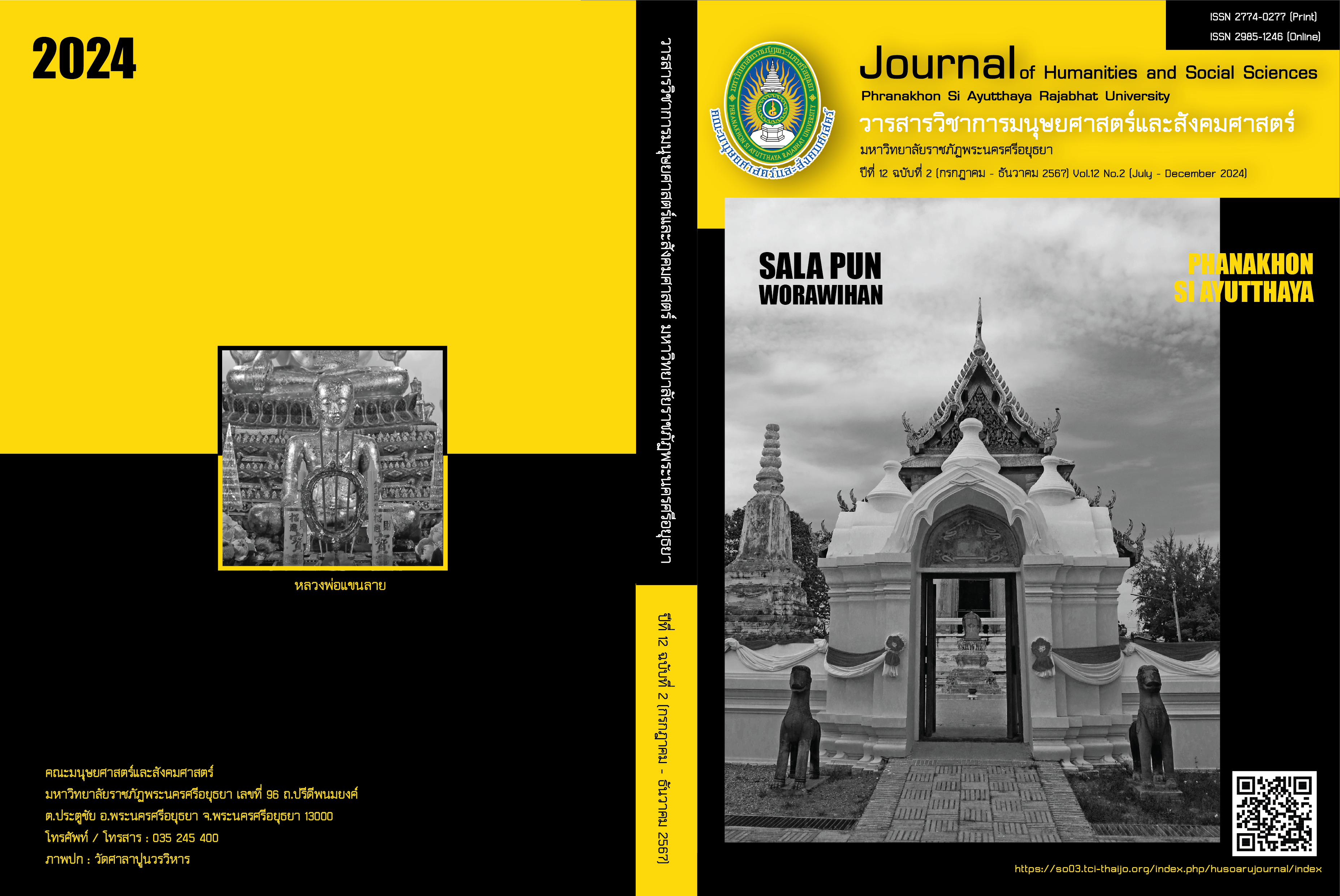ประเด็นที่น่าขบคิดบางประการ กรณีผู้สอนภาษาอังกฤษระหว่างผู้สอน ที่เป็นเจ้าของภาษาและผู้สอนที่ไม่ใช่เจ้าของภาษา ในบริบทการสอนภาษาอังกฤษในฐานะภาษาต่างประเทศ
Main Article Content
บทคัดย่อ
ภาษาอังกฤษได้รับการยอมรับให้เป็นภาษาสากลและภาษากลางของโลกมาเป็นเวลานาน ดังนั้น จำนวนผู้ที่ไม่ใช่เจ้าของภาษาและใช้ภาษาอังกฤษในการสื่อสารมีมากกว่าผู้ที่เป็นเจ้าของภาษา ส่งผลให้ครูสอนภาษาอังกฤษที่ไม่ใช่เจ้าของภาษามีจำนวนมากกว่าครูที่เป็นเจ้าของภาษาด้วยเช่นกัน ความเป็นเจ้าของภาษาที่แท้จริงนั้นไม่ควรที่จะวัดกันตามประเทศที่บุคคลผู้นั้นถือกำเนิด ผู้สอนที่เป็นเจ้าของภาษามีจุดเด่นในด้านการอธิบายความหลากหลายของภาษาและวัฒนธรรมได้ดีกว่าผู้สอนที่ไม่ใช่เจ้าของภาษา ในทางกลับกันผู้สอนที่ไม่ใช่เจ้าของภาษาอาจสามารถเข้ามาเติมเต็มให้ผู้เรียนภาษาอังกฤษในฐานะภาษาต่างประเทศเข้าใจในความยากของไวยากรณ์ภาษาอังกฤษได้มากกว่า ซึ่งนโยบายในการจ้างงานผู้สอนภาษาอังกฤษของสถานศึกษาใดก็ตามไม่ควรที่จะนำมุมมองเรื่องความเป็นเจ้าของภาษามาเป็นประเด็นหลัก แต่ควรต้องคำนึงถึงความสามารถทางภาษาและความสามารถในการสอนภาษา รวมถึงทักษะการจัดการเรียนการสอนภาษา
Article Details

อนุญาตภายใต้เงื่อนไข Creative Commons Attribution-NonCommercial-NoDerivatives 4.0 International License.
บทความที่ได้รับการตีพิมพ์เป็นลิขสิทธิ์ของ คณะมนุษยศาสตร์และสังคมศาสตร์ มหาวิทยาลัยราชภัฏพระนครศรีอยุธยา
ทัศนะและความคิดเห็นที่ปรากฏในบทความในวารสารฯ ถือเป็นความรับผิดชอบของผู้เขียนบทความ และไม่ได้เป็นทัศนะและความรับผิดชอบของ กองบรรณาธิการ หรือ ของ มหาวิทยาลัยราชภัฏพระนครศรีอยุธยา
เอกสารอ้างอิง
ครูอาชีพดอทคอม. (2564). คุณครูต้องรู้! เปิด 4 เงื่อนไข ลดระยะเวลาขอวิทยฐานะเหลือ 3 ปี. http://www.kruachieve.com/เรื่องราว/เงื่อนไข-ลดระยะเวลาการขอวิ/
บดินทร์ แวลาเตะ, ยุโสบ บุญสุข, อีริค เอ เอมเบเล และฟาอีซะห์ วาโซะ. (2562). มิติความแตกต่างและประสิทธิภาพในการสอนภาษาอังกฤษของผู้สอนที่เป็นเจ้าของภาษาและไม่เป็นเจ้าของภาษาในมหาวิทยาลัยไทย. มนุษยศาสตร์สาร, 20(2), 225-257.
สำนักงานคณะกรรมการการศึกษาขั้นพื้นฐาน. (2564). แนวทางการพัฒนาทักษะภาษาอังกฤษ ตามกรอบมาตรฐานความสามารถทางภาษาอังกฤษ (CEFR).
สำนักงานเลขาธิการคุรุสภา. (2563). คู่มือการใช้งานสำหรับสถานศึกษาระบบบริการสถานศึกษา (KSP school): การขอหนังสืออนุญาตให้ประกอบวิชาชีพทางการศึกษา โดยไม่มีใบอนุญาตประกอบวิชาชีพเป็นการชั่วคราว. https://www.ksp.or.th/ksp2018/wpcontent/uploads/2019/02/KSPSCH_tmplicense_th.pdf
Borg, S. (2003). Teacher cognition in language teaching: A review of research on what language teachers think, know, believe, and do. Language teaching, 28, 81-109.
Braine, G. C. (2010). Nonnative speaker English teachers: Research pedagogy and professional growth. Routledge.
Canagarajah, A. (1999). Resisting linguistic imperialism in English teaching. Oxford University Press.
Clouet, R. (2006). Native vs. non-native teachers: A matters to think over. Revista De-Filogia, 24, 69-75.
Comprendio, L. (2019). The beliefs of students, parents, Thai teachers and administrators toward international native and non-native English teachers: A study of three schools in Southern Thailand [Masters’s thesis]. Prince of Songkla University.
Crump, A. (2007). Examining the role of assistant language teacher on the JET programme within the context of Nihonjinron and Rokusaika: Perspectives from ALTs [Doctoral dissertation]. McGill University.
Davies, A., & Elder, C. (2008). The handbook of applied linguistics. John Wiley & Sons.
Dervic, M., & Becirovic, S. (2019). Native and non-native EFL teacher dichotomy: Terminology, competitiveness and employment discrimination. Journal of Language and Education, 5(3), 114-127.
Floris, F.D., & Renandya, W. A. (2020). Promoting the value of non-native English-speaking teachers. PASAA Journal, 59, 1-19.
Freeman, D., Katz, A., Gomez, P. G., & Burns, A. (2015). English-for-teaching: Rethinking teacher proficiency in the classroom. ELT Journal, 69(2), 129-139.
Harmer, J. (2015). The practice of English language teaching. Pearson.
Holmberg, A., Nayuda, A., & Sheehan, M. (2009). Three partial null-subject languages: A comparison of Brazilian Portuguese, Finnish and Marathi.Studia Linguistica, 63(1), 59-97.
Kachru, B. B. (1982). The pragmatics of non-native varieties of English. In L. E. Smith (Ed.), English for cross-cultural communication (pp.15-39). Springer.
Kelch, K., & Santana-Williamson, E. (2002). ESL students’ attitudes toward native and non-native speaking instructors’ accents. CATESOL Journal, 14(1), 57-72.
Kiczkowiak, M. (2020). Recruiters’ attitudes to hiring ‘native’ and ‘non-native speaker’ teachers: An international survey. The Electronic Journal for English as a Second Language, 24(1), 1-22.
Krashen, S. (1982). Principle and practice in second language acquisition. Pergamon Press.
Liang, J. (2009). The courage to teach as a nonnative English teacher: The confessions of a Christian teacher. In M. S. Wong, & A. S. Canagarajah (Eds.), Christian and critical English language educators in dialogue: Pedagogical and ethical dilemmas (pp.163-172). Routledge.
Lippi-Green, R. (1994). Accent, standard language ideology, and discriminatory pretext in the courts. Language in Society, 23(2), 163-198.
Medgyes, P. (1992). Native or nonnative: Who’s worth more? ELT Journal, 6(4), 340-349.
Meksophawannagul, M. (2015). Teacher and learner views on effective English teacher in the Thai context: The case of engineering students. English Language Teaching, 8(11), 99-116.
Murphy, R. (2013). English grammar in use. Cambridge University Press.
Numrich, C. (1996). On becoming a language teacher: Insights from diary studies. TESOL Quarterly, 30(1), 131-153.
Ozturk, U., & Atay, D. (2010). Challenges of being a nonnative English teacher. Educational Research, 5(1), 135-139.
Phillipson, R. (1992). Linguistic imperialism. Oxford University Press.
Renandya, W. A., Hamid, F. A., & Nurkamto, J. (2018). English language proficiency in Indonesia: Issues and prospects. The Journal of Asia TEFL, 15(3), 618-629.
Ruecker, T., & Ives, L. (2014). White native English speakers needed: The rhetorical construction of privilege in online teacher recruitment spaces. TESOL Quarterly, 49(4), 733-756.
Saengboon, S. (2006). CLT revisited. NIDA Language and Communication Journal, 11(11), 136-148.
Stevens, P. (2019). Viewpoint: The silence of ESL speakers. SHRM. https://www.shrm.org/resourcesandtools/hr-topics/behavioral-competencies/global-and-cultural-effectiveness/pages/viewpoint-the-silencing-of-esl-speakers.aspx
Walkinshaw, I., & Oanh, D. H. (2014). Native and non-native English language teachers: Student perceptions in Vietnam and Japan. Sage Open, 4(2). https://doi.org/10.1177/2158244014534
Wichadee, S. (2010). Using wikis to develop summary writing abilities of students in an EFL class. Journal of College Teaching & Learning, 7(2), 5-10.


